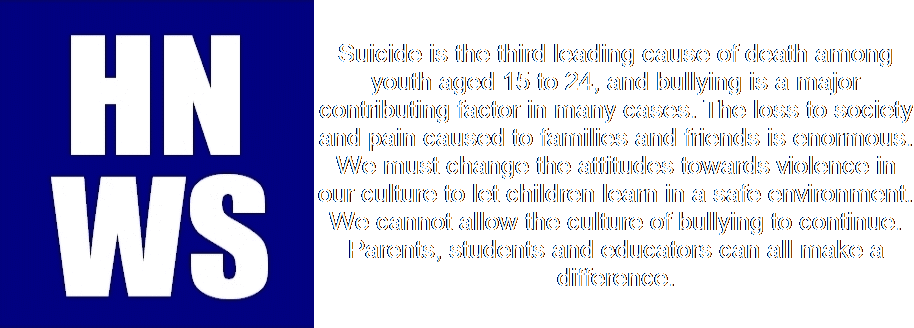When it comes to understanding teen mental health, we're really in the stone age. With that kind of serious lack of understanding of the adolescent mind, it's almost amazes me that we can communicate with them at all. The human mind is a vast and complicated network; the human mind flooded with teenage hormones and subjected to the stress of the modern world sometimes becomes an unsolvable maze.
"We really don’t have any evidence-based treatment for suicide and suicidal behavior among adolescents." ~ Jennifer Green, a Harvard School of Education assistant professor of special education.In Canada, what treatment there is hard to access and not universally available. According to Sick Kids Hospital in Toronto, "approximately 300 children and teens commit suicide in Canada every year", yet a review of data collected by the Canadian Community Health Survey showed only half of the over 600 cases accessed any form of mental health care. Clearly we need to do much better.
This isn't to say that nothing can be done to help kids in trouble, far from it. It's just that the long term treatments are still sometimes problematic. If you are worried about your child's mental health, there are signs to watch for and steps to take that can help. If your child is in crisis, take them to your local emergency room IMMEDIATELY! If your teen is not yet in crisis, HelpGuide.org has an excellent guide for parents about recognizing and dealing with teen depression. Another good guide can be found at HealthyChildren.org. Check our Parents resource page for more ways to get help.
Just because we don't truly understand the various mental mechanisms involved in teen suicide doesn't mean we can't help families affected by it. Every parent who has lost a child by suicide asks themselves the same questions, aka the "Woulda, coulda, shouldas". I could list them by memory at this point, but I don't ask myself them much anymore. I gave up for lack of answers. My list centered around what we didn't know about Steven's state of mind. Was he clinically depressed? Did he have another mental health issue? Given that we'll never be able to get reliable answers to such questions, I eventually decided that there was little point in torturing myself with them. Getting help with the grieving process and associated PTSD was another story.
My experience in the mental health system while dealing with my grief was a patchwork of approaches. I was shuffled around, speaking to unqualified, well meaning therapists and psychiatrists none of whom really had much help to offer. I say "unqualified" not because these people were under trained or inexperienced. They were, with two forgettable exceptions, very well trained, knowledgeable and dedicated. I use the term because the harsh reality is, as one expert I spoke to put it, there is nothing anyone can tell a grieving parent that will help. While that may be a bit of an over statement, at least in the early part of the process it was true for me.
Ultimately, everyone's grieving process is unique, so what works for one may not work for another. I am amazed as I watch parents like Kirk Smalley and Carol Todd who had the strength to start public campaigns so soon after losing their children. I was unable to function at anywhere near that level for much longer, but as I said, everyone is different. Some parents find solace in religious belief, or meditation. I have come to believe that, for me at least, peace is found not from accepting my son's death, but from accepting that I can't change how it happened, and writing about it. A therapist I once spoke to ran a group that wrote about their loved one, then burned the writings as a way to let go.
There is a wonderful blog called Esdeer.com by author Maureen Hunter that has many good articles, both inspiring and healing, to help grieving parents and family members. In the UK, Survivors of Bereavement by Suicide offers many helpful services including a help line. Sites like The Bereavement Journey,Baby Steps and Bereaved Families Of Ontario all offer services for parents mourning the loss of a child. There are also many of us out here, waiting to talk if that feels right to you. You aren't alone.
